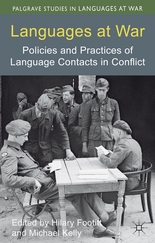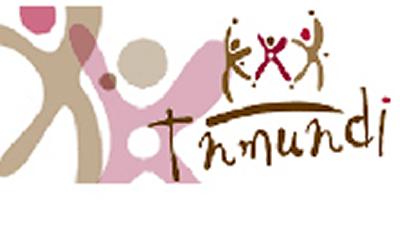-
Recent Posts
- CLLEAR seminar Friday 6th October: Prof Tania Ionin 26/09/2017
- TNS Workshop 6th July 19/06/2017
- CLLEAR Thurs 25th May @ 4pm: Prof Jennifer Smith and Dr Sophie Holmes-Elliot 22/05/2017
- CLLEAR Seminar Wednesday 17th May: Prof Alessandro Benati 11/05/2017
- CLLEAR Seminar Friday 5th May: Dr Neal Snape 27/04/2017
Archives
Research project resources
As part of our research, members of the Institute for Language and Culture have developed online materials and resources that will be of interest to other researchers in the field.
| Schenker Documents Online
The web-based project Schenker Documents Online, funded by the AHRC from 2011 to 2014, and the Austrian Science Fund (FWF) from 2014-2017, brings together researchers in the Departments of Music and Modern Languages at the University of Southampton as well as colleagues from the Centre for Computing in the Humanities, King’s College London and the Universität für Musik und darstellende Kunst, Vienna. The project has produced an online scholarly, critical edition of documents related to Viennese musician and teacher Heinrich Schenker (1868-1935), the twentieth century’s leading theorist of tonal music. Read more… |
| Social networks, target language interaction, and second language acquisition during the year abroad: A longitudinal study (LANGSNAP)
The 2011-2013 LANGSNAP project, funded by the ESRC, tracked the language learning and social integration of 57 students during their Year Abroad in France, Spain and Mexico. The LANGSNAP repository makes selected research data available to researchers worldwide. The LANGSNAP corpora include both spoken and written data produced over a 21-month period by advanced learners of French and Spanish. It complements the existing learner corpora for French and Spanish available from the FLLOC and SPLLOC projects, with longitudinal advanced learner datasets. Read more… |
| Los Niños: Child exiles of the Spanish Civil War
In 2009 the University of Southampton, in collaboration with Hampshire Archives and Local Studies, received a grant from the Heritage Lottery Fund (HLF) to record and disseminate the life histories of 30 former refugees that arrived in Southampton in May 1937. An online version of the exhibition related to the project can be seen here. Read more… |
 OpenLIVES (Learning Insights from the Voices of Emigrés from Spain) OpenLIVES (Learning Insights from the Voices of Emigrés from Spain)
The OpenLIVES project (Learning Insights from the Voices of Emigrés from Spain) was funded by the JISC and has digitised and published resources documenting the migration experiences of Spanish emigrés. The research data, released as open content, has also been developed into open educational resources for a range of teaching and learning contexts in humanities and social sciences on topics such as migration, life history, employability skills, research skills, and language learning. The project was a collaboration led by the LLAS Centre and including the Universities of Southampton, Leeds and Portsmouth. Resources from the project are available on the HumBox repository and further information is available on the project blog. |
 Languages at War – Policies and Practices of Language Contacts in Conflict Languages at War – Policies and Practices of Language Contacts in Conflict
Language encounters were and are an everyday part of the multinational peacekeeping deployment in Bosnia-Herzegovina. This project, funded by the AHRC from 2009-2011, investigated the policies and practice of language encounters in the Bosnian peacekeeping operation between 1995 (the end of the war in Bosnia-Herzegovina) and 2000. The Languages at War website contains further information about the project’s approach, workshops and publications. Read more… |
| Complexity in Language
This project explores the implications of viewing the grammars of natural languages as complex adaptive systems, and identifies new methodologies for linguistic research within complexity science. Read more… |
| Tracking the progress of pre-sessional students
This project was funded by the British Association of Lecturers in English for Academic Purposes (BALEAP) and brought together 14 universities to track the progress of pre-sessional students once they join their degree programmes. The project looked at the student experience in general, but most investigators were also interested in how students cope with the writing and speaking demands of their degree programmes and the extent to which they use the skills and strategies taught on their pre-sessional courses. Read more… |
 Learning, use and perceptions of English as a Lingua Franca communication in European contexts (LINEE) Learning, use and perceptions of English as a Lingua Franca communication in European contexts (LINEE)
This collaborative project with partners in Southampton, Szeged and Prague forms part of the wider LINEE network funded under the European Union 6th Framework (Languages in a Network of European Excellence). The team conducted research into the acquisition of English as a Lingua Franca (ELF) and its use in conversational settings, and into European non-native and native English speakers’ perceptions of effective ELF communication. The LINEE website contains more information about the network and the LINEE+ association for researchers interested in linguistic and cultural diversity. Read more… |
| French Learner Language Oral Corpora (FLLOC)
The FLLOC website contains the contents of a database freely available to the research community, in the form of digital sound files and related transcripts formatted using CHILDES software. A search facility is also provided which enables researchers to select the sound files and transcripts they wish to download from the site. The database currently contains over 4000 files (sound files, transcripts and morphosyntactically tagged transcripts). The website also aims to include an inventory of other French interlanguage corpora not available within FLLOC but held by other researchers and institutions. The FLLOC website is the outcome of a series of research projects funded by the UK Economic and Social Research Council (ESRC), Arts and Humanities Research Council (AHRC) and the British Academy since 2001, at the University of Southampton and Newcastle University. |
 Diaspora as social and cultural practice (TNMundi) Diaspora as social and cultural practice (TNMundi)
This AHRC-funded study of transnational networks across Europe and Africa researched the question: How do (post-)migrant cultural practitioners, performers and musicians originating from North Africa and Madagascar use multiple translocal and transnational networks across African, European and wider global spaces? The TNMundi website contains further information on project research, publications, and public events. Read more… |
| Spanish Learner Language Oral Corpora (SPLLOC)
The SPLLOC website contains a high quality database of spoken learner Spanish collected as part of two research projects, SPLLOC 1 (April 2006-March 2008) and SPLLOC 2 (August 2008-January 2010). In both projects, data has been collected from classroom learners of Spanish (with English as their first language), from beginners to advanced level, using specially designed elicitation tasks. For comparison purposes, native speakers were also recorded undertaking the same tasks. The resulting database of L2 Spanish contains digital soundfiles of learner speech, in varying genres, accompanied by transcripts in CHILDES format. These projects were funded by the UK Economic and Social Research Council (ESRC). |
 Searching for Neighbours: dynamics of mental and physical borders in Europe (SeFoNe) Searching for Neighbours: dynamics of mental and physical borders in Europe (SeFoNe)
SeFoNe explores the dynamics of socio-cultural and physical borders in the newly enlarged European Union (EU), as experienced by people of culturally diverse backgrounds, with a view to strengthen peoples’ competence for cultural understanding and exchange. The SeFoNe website contains further information about the research strands, publications and public events associated with the project. Read more… |
 European Profile for Language Teacher Education: A Frame of Reference European Profile for Language Teacher Education: A Frame of Reference
The European Profile for Language Teacher Education presents a clear and comprehensive outline of foreign language teacher education in Europe in the 21st century. The Profile has been developed in consultation with a wide range of European experts and draws on the practical experience of eleven European teacher education institutions. The Profile aims to serve as a checklist for existing teacher education programmes and a guideline for those still being developed. However the Profile is not a mandatory set of rules. Rather it is designed as a voluntary frame of reference that policy makers and language teacher educators will be able to adapt to their existing programmes and needs. The development of the Profile was carried out with the support of the European Commission Directorate General for Education and Culture. |